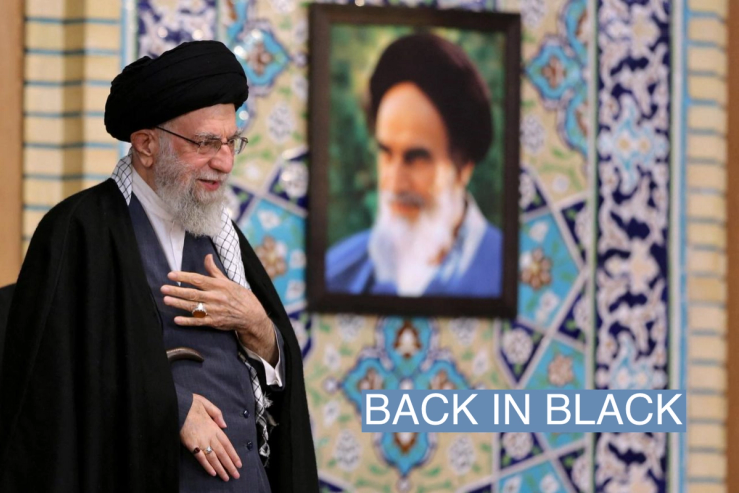The News
With each passing week, Iran and its closest ally, Syria, are looking less and less like international pariahs.
First came China’s announcement this month that it had brokered a historic deal normalizing ties between Tehran and its principal regional rival, Saudi Arabia.
Just days after that détente agreement was unveiled, Riyadh said that it was also in discussions with Syrian President Bashar al Assad’s government to restore relations that were severed over a decade ago following Damascus’s brutal crackdown on opposition protesters that led to civil war.
The Saudi initiative, which has been championed by both China and Russia, follows Assad’s trips in recent months to the United Arab Emirates and Oman — two Arab countries that initially supported the rebels seeking the Syrian leader’s ouster. (UAE first reopened its Syria embassy in 2018).
Tehran now says it plans to turn eastward towards Asia and the Global South to cement more ties, including last week’s restoration of relations with the Maldives.
Jay’s view
Current and former Iranian officials have hailed its recent diplomatic developments as key wins for Tehran in its global chess match with the United States. In a column in Iran’s Mashregh news site, a senior military advisor to Supreme Leader Ali Khamenei called the Saudi deal “a political earthquake and an end to American hegemony” in the Middle East.
An exaggeration? Sure. But there’s also a grain of truth beneath the boasting. The U.S. has spent years erecting a network of sanctions and diplomatic blacklistings that up until just a few weeks ago had increasingly isolated Iran as well as Syria, with whom Tehran controls a network of regional militias and proxies. Thanks to these recent deals, those walls are threatening to crack, giving Iran leeway to advance its nuclear program and crack down on months-long anti-regime protests.
Isolating Iran and its allies has been the driving force behind U.S. strategy in the Middle East going back decades under both Republican and Democratic administrations. The primary tool for this campaign has been a vast and intricate web of financial sanctions that have targeted Iran’s finances globally, as well as those of Syria, Hezbollah, and other Tehran-backed groups. Washington and the West have also sought to deny Iran the equipment and resources to advance its nuclear program and support for international terrorism.
A high point in this campaign came during the Obama administration when the U.S. and Europe blacklisted Iran’s central bank and drove Tehran’s oil exports down to hundreds of thousands of barrels per day from as high as 3 million.
Many of these sanctions were lifted in 2016 as part of the U.S.-led deal that limited Tehran’s nuclear program. But they were reinstated when the Trump administration exited the agreement in 2018, and Iran’s crackdown on domestic protesters and recent military support for Russia sparked a wave of new penalties from Washington and Brussels.
The key to the Iran sanctions regime, though, has always been the ability of Washington to hold together an international coalition, particularly among Iran’s neighbors. These Chinese and Russian-backed deals can provide Tehran and Damascus breathing room even as Tehran continues to be denied Western finance and investment.
Iran’s foreign minister this week said his country plans to invite Saudi Arabia’s King Salman to Tehran, following an invitation to Iran’s president to visit Riyadh. Economic development will be among the issues discussed. Meanwhile, Iran’s Energy Minister announced this month that its oil exports grew 15% in the year ending this March from the previous year, the highest level since 2018.
The View From Tehran
In addition to the sanctions, Iran has been troubled by Israel’s entrance into their region though the U.S.-brokered Abraham Accords, which saw Israel normalize ties with the UAE, Bahrain, Morocco and Sudan in recent years. The Biden administration has recently been seeking to establish relations between Israel and Saudi Arabia.
Iranian media has touted the Beijing Agreement in recent days specifically for besting the Abraham Accords and beating Israel to Riyadh. The hardline daily Vatan-e Emrooz predicted it would “neutralize many of the destructive activities of the United States and its ally, the Zionist regime” while making the Abraham Accords “ineffective.”
The View From Israel
The Israeli government of Prime Minister Benjamin Netanyahu, in turn, has voiced alarm about Tehran’s diplomatic rehabilitation, particularly at a time when Iran’s nuclear program is making major advances. Inspectors at the U.N.’s nuclear watchdog have reported that Iran is close to producing weapons grade uranium. And the chairman of the U.S. Joint Chiefs of Staff said this month, for the first time, that Iran could be only months from assembling a nuclear weapon. Netanyahu has repeatedly threatened to use military force to prevent this.
Still, widespread political protests against Netanyahu’s government, and strains between Israel and the U.S., could prevent a united front against Tehran, warned Israeli analysts this week. “The domestic political realities in Israel and the developments in its relations with the U.S. do not escape the attentions of Iranian authorities,” wrote a former Iran analyst in the Israeli Defense Forces.
Room for Disagreement
The White House did not respond to requests for comment. However, Biden administration officials have said the U.S. remains committed to isolating Tehran economically and is vigorously enforcing sanctions against both Iran and Syria. Earlier this month, they note, the U.S. sanctioned 39 firms for allegedly helping Iran skirt international oil sanctions, including companies in Hong Kong, Singapore and the UAE. The U.S. also sanctioned this week Syrian and Lebanese officials who are allegedly trafficking narcotics to help fund the Assad regime.
The View From The U.S. Treasury
Treasury Secretary Janet Yellin, however, raised eyebrows this month when she appeared to question the overall utility of sanctioning countries like Iran and North Korea to try and deny them nuclear weapons. Speaking at a Capitol Hill hearing, she said: “Sometimes a regime is so committed to a program, that even when the population of that country is suffering immensely because of sanctions we’ve imposed, they continue to prioritize activities that are the ones we’re trying to stop.”
Notable
- Forty former U.S. officials and Syria experts wrote the Biden administration this month expressing their alarm about the rehabilitation of President Assad.
- Former Treasury official, Juan Zarate, writes in a book how financial sanctions emerged as a central pillar in U.S. national security strategy.
- Politico writes how Iran has been advising Russia on sanctions evasion.


